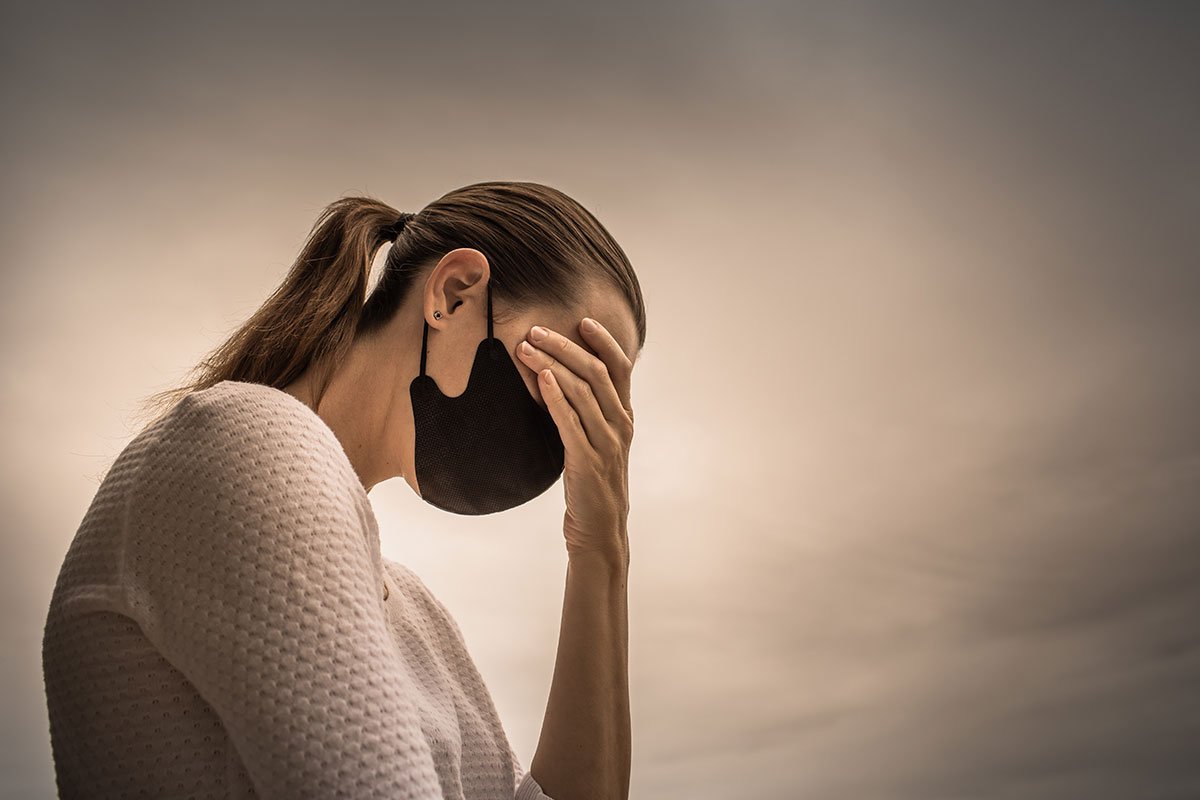
The coronavirus pandemic has Virginians at home almost 24/7, worried, stressed and anxious. During an unprecedented situation, it can be hard to stay positive and feel happy.
To find helpful tips on how to deal with anxiety and feeling down in the dumps, as well as parenting and relationships during the time, we spoke with Avy Stock, PSYD, clinical director at The Ross Center, a mental health treatment facility with locations in Vienna and Washington, DC. Keep reading to learn how you can be less anxious as we continue to flatten the curve.
For those who normally struggle with anxiety and depression, and then are now living through the pandemic on top of it all, what are the best coping mechanisms? What are the best coping mechanisms for those who have never experienced anxiety before but are finding themselves irritable, worried, etc. right now?
It’s really important to keep routine and structure as part of our life, even if the routine is different than usual. For example, keep going to bed and waking up at the same time every day. Eat regular meals. Continue with an exercise routine. Make sure your daily life is balanced with activities that provide feelings of mastery and accomplishment, as well as other activities that provide enjoyment. “Socializing” in whatever this time allows for is also key, like weekly Zoom meetings with friends, family dinners, etc.
Most people are working from home during the stay-at-home order, which causes its own stress. What are your tips for mentally separating “work life” from “home life” when those two worlds are coexisting now more than ever?
Again, schedules are really important and it is key to stay true to it. If you are someone who typically works eight to 10 hours per day, schedule that time when it is reasonable. Now that people may have more child care responsibilities, it may not be reasonable to expect to work from 9 a.m. to 5 p.m. It may be more realistic to work in two-hour shifts and alternate with your partner if possible. Let your work colleagues and supervisors know when you will be “on” and “off.”
Many relationships are being tested right now, as couples are in close quarters and spending more time with one another. What can they do to keep the peace, as well as take this time and make it into a positive experience for their relationship?
Realistic expectations are really important right now. Some partners want more quality time, while others don’t see a need for any changes. Expectations should be discussed as a couple and agreed upon. Most things can be discussed ahead of time, rather than one person in the couple assuming that this would be a good time for more alone time, while the other person in the couple had no idea expectations would change. Alone time versus quality time should be discussed and compromises can change from week to week. Some ideas are to find a TV show and one episode is watched per night together, or create a house project to work on together. In the same way, find special things to do on your own time: pick up a good book, engage with your friends on a weekly basis, etc.
What are your tips for parenting during a pandemic?
Don’t be afraid to take breaks. A lot of parents feel they need to give their kids 100% of their attention, even though if their kids were in school, they would not be getting 100% of their teacher’s attention. Cope ahead by scheduling Zoom play dates, homework time, screen time, etc., so that you can have some alone time as well. Set realistic expectations when it comes to online school responsibilities. Communicate with teachers so that they are able to adjust expectations accordingly as well. Most importantly, share responsibilities with partners and other family members who can help with the caretaking responsibilities.
What are the key warning signs that a person should reach out to a professional for help when they are feeling sad and/or anxious?
When anxiety, even normal levels of anxiety, is impacting your daily functioning, such as your ability to concentrate or complete your work, it may be time to see a professional. You might notice that you are more irritable or losing interest in things you used to enjoy. Also, sleep and eating habits can be disrupted. You can reach out to a professional at any time in order to participate in a consultation. You don’t have to feel like you have to make the decision about whether therapy is appropriate on your own. Your primary care doctor is also a great resource and can provide an opinion as to whether you would benefit from therapy.
Is there anything else you’d like to add about mental health and living through a pandemic?
People need to expect to be anxious in this time of uncertainty. It is completely normal. We will have good days, bad days and neutral days. Try to be present in the moment and enjoy as much as you can while at the same time having confidence in your ability to cope with the unexpected.
For more health tips during the coronavirus pandemic, subscribe to our weekly Health newsletter.




